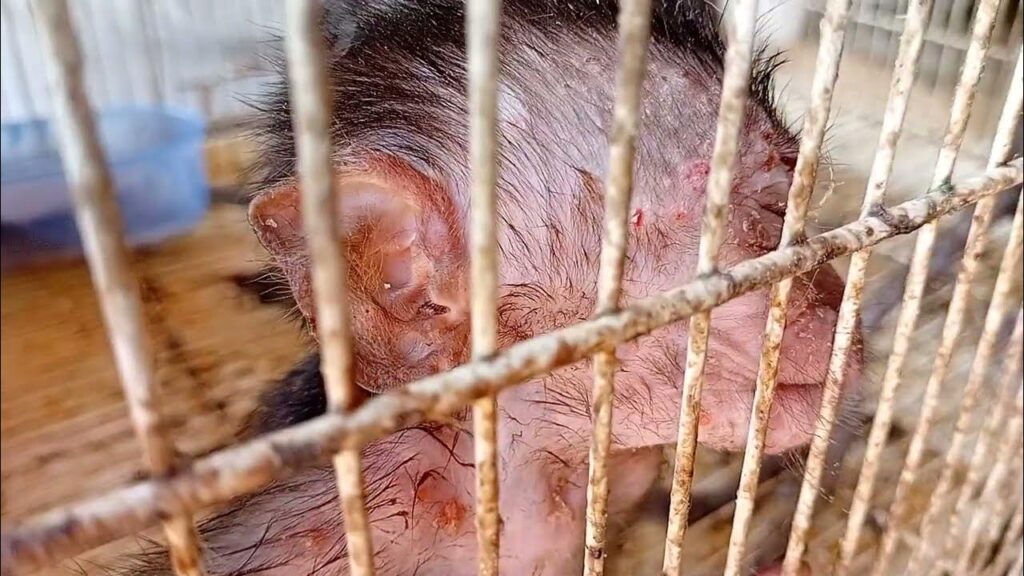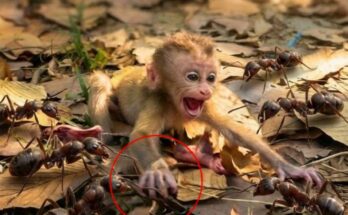
These baby monkeys arrive at the market through different means. Some are captured from the wild, separated from their mothers in heartbreaking encounters. Others are bred in captivity, born into confinement without ever knowing the freedom of swinging through tree branches. For them, the market is the only world they have ever known—a place of constant noise, strange smells, and an endless stream of human faces peering into their cages.
During the day, the market hums with activity. Vendors call out prices, haggle with customers, and boast about the “intelligence” or “playfulness” of their baby monkeys. Some buyers come with genuine affection, hoping to raise a pet. Others see the monkeys as status symbols, novelties, or even entertainment. But few fully understand the complexity of caring for such intelligent, social creatures, or the sadness of a life spent in captivity.
The baby monkeys themselves are a study in contrasts. Some huddle together for comfort, clutching each other’s fur, eyes darting nervously at the commotion around them. Others reach tiny hands through the bars, curious about the outside world. They chew on bits of rope or scraps of cloth placed in their cages, a poor substitute for the leafy branches and fruits they would find in the wild.
Feeding times are moments of brief joy. The vendors toss in bananas, pieces of fruit, or rice. The little monkeys chatter excitedly, their high-pitched squeaks mixing with the background noise of the market. For a few minutes, they are lost in the simple pleasure of eating. But soon after, the reality of their surroundings settles back in—concrete floors, cramped cages, and no place to climb or explore.
The market is not without its darker side. The heat can be oppressive, and fresh water is not always provided as often as it should be. Some baby monkeys grow sick from the stress, malnutrition, or exposure to too many humans handling them. Without the constant care of their mothers or a safe social group, many fail to thrive.
For those who are purchased, life can take many turns. Some find themselves in homes where they are loved and given space to play, though even then, domestic life cannot replicate the wild. Others end up chained, kept in small enclosures, or trained for performances—further removed from the natural life they were meant to lead.
Yet, even in these harsh conditions, there is resilience. Baby monkeys are naturally curious, playful, and adaptable. Some will cling to a toy or piece of cloth as though it were a sibling. They play with each other when possible, inventing games in the limited space they have. Their spirit, though tested, often survives in small bursts of joy and mischief.
The animal market is a place of constant movement, but for the baby monkeys, it is a waiting game—waiting for the next meal, the next owner, or perhaps, in rare cases, a rescue that will return them to a sanctuary. Their lives here are a reminder of the complex relationship between humans and wildlife, one where curiosity and compassion often clash with exploitation and misunderstanding.


